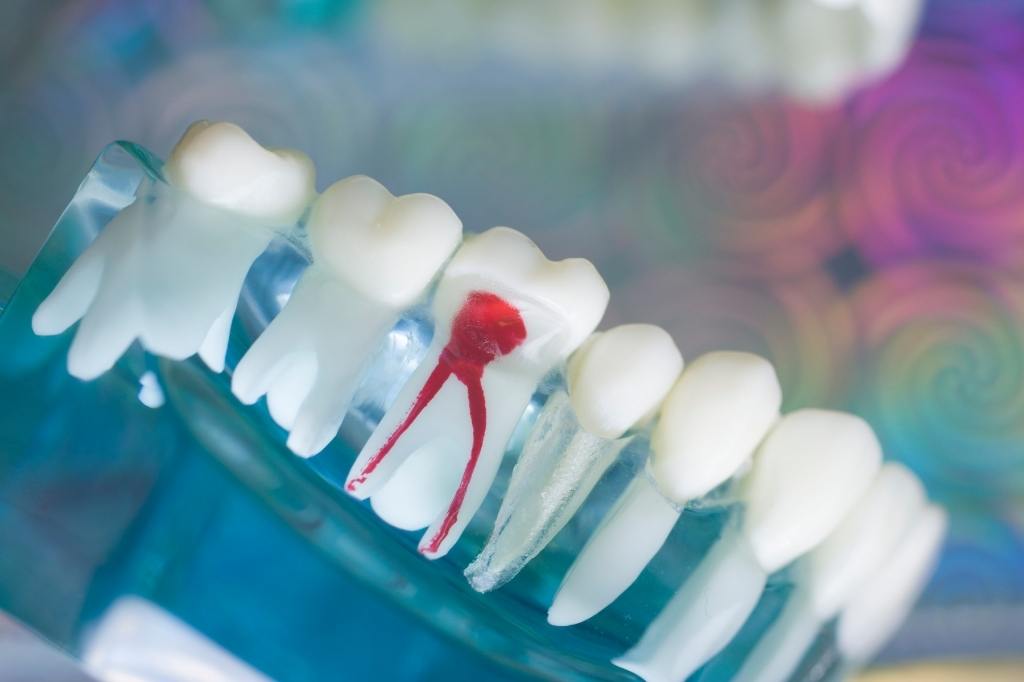If you have been noticing that your gums are constantly bleeding, even when you are brushing and flossing regularly, you may be wondering what is causing this problem. There are several different causes of gum bleeding, some of which are more serious than others. In this blog post, we will discuss the most common causes of gum bleeding and provide solutions for each one.
What causes gum bleeding?
There are many different types of bacteria that can live in your mouth, and some of these bacteria can cause gum disease. When you don’t brush and floss your teeth regularly, the plaque and tartar on your teeth provide a perfect environment for these bacteria to grow. As the bacteria grow, they release toxins that can damage the gums and lead to inflammation. This inflammation can cause the gums to bleed. So, poor oral hygiene is a leading factor in developing conditions that cause your gums to bleed because it allows bacteria to grow and release toxins that damage the gums.
Gingivitis
The most common cause of gum bleeding is gingivitis. Gingivitis is a form of gum disease that is caused by plaque buildup on the teeth. Plaque is a sticky film of bacteria that forms on the teeth and gums, and it can irritate the gums, causing them to bleed. If you have gingivitis, you may notice that your gums are red and swollen, and they may bleed when you brush or floss your teeth. The good news is that gingivitis is reversible with proper oral hygiene. Be sure to brush and floss your teeth twice a day, and see your dentist for regular cleanings.
Periodontitis
Another common cause of gum bleeding is periodontitis. Periodontitis is a more serious form of gum disease that occurs when the gums become inflamed and pull away from the teeth. This can lead to bone loss and tooth loss. If you have periodontitis, you may notice that your gums are red, swollen, and bleed easily. You may also notice that your teeth are loose or that you have bad breath. Periodontitis is not reversible, but it can be controlled with proper oral hygiene and regular dental visits.
Smoking
Smoking and other tobacco use can also increase your risk of gum disease. This is because tobacco products contain chemicals that can damage the gums and lead to inflammation. Additionally, smoking and other tobacco use can make it harder for your body to fight off infection. So, if you smoke or use tobacco, quitting is the best way to improve your oral health.
Certain Medications
Certain medications can also lead to gum bleeding. This includes blood thinners, chemotherapy drugs, and some acne medications. If you are concerned that your medication is causing gum bleeding, talk to your dentist or doctor. They may be able to prescribe a different medication.
Pregnancy
Pregnancy can cause changes in the hormones and blood flow that can lead to gum bleeding. This is because the increased hormones and blood flow can make the gums more sensitive and prone to bleeding.
If you are pregnant and have concerns about gum bleeding, talk to your dentist or doctor. They can help you find the best way to take care of your teeth and gums during pregnancy.
Genetics
Genetics may also play a role in gum disease. This means that if you have a family history of gum disease, you be more likely to develop it yourself. However, good oral hygiene and regular dental visits can help reduce your risk of gum disease, even if you have a family history of the condition.
How do I prevent my gums from bleeding?
Good oral hygiene is important to help avoid gum disease. This includes brushing and flossing your teeth twice a day and seeing your dentist for regular cleanings.
Bleeding gums? Call our office today for treatment.
If you are noticing gum bleeding, it is important to see your dentist to find out the cause. Only a professional can determine the best course of treatment for your individual situation.
If you are notice that your gums are bleeding, call our office at any of our five Nevada offices in Reno, Sparks, Sun Valley, Stead, and Damonte to schedule a consultation. We will be happy to answer any questions you have and get your oral health on track.


